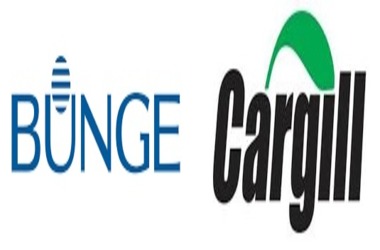
The stunning venture governs the distribution of data among members of Covantis, which also involves partaking of other agro business behemoths such as the Chinese state-owned company Cofco International, French Louis Dreyfus Company (LDC) and the Dutch multinational Glencore Agriculture.
Put together the enterprises that constitute Covantis ship about 550 million tons of grains and oilseeds every year. The objective of the partnership is to bring together the industry data and pave way for interaction between partakers and enhancing logistics procedures at the ports, for example, utilizing blockchain technology. The roll out of official platform is anticipated by next year.
Nearly 500,000 business deals are discussed every year in Brazil and the first trial of the platform was conducted at Port of Santos during July-August 2020.
11 enterprises participated in the trial. It includes trading firms, grain producers and originators. Petya Sechanova, Covantis CEO said
“Covantis should become the leader of operations in our sector and will be able to streamline processes, modernize and digitize them.”
As per the CEO, Brazil was selected due to the market’s perplexity. Sechanova, speaking to the Valor publication, stated that the country witnessed the happening of “chain sales” or “string sales”, in which dozens of third parties had to perform various processes for shipment to take place in order, notwithstanding the fact that only end buyers and shippers have access to the physical goods.
The trading companies associated with Marcos Amorim, director of the contracts committee of the National Association of Cereal Exporters (Anec), is having an active partnership with Covantis. He opined that the process is cumbersome:
“Imagine that each shipment has both a purchase contract and a sales contract, that there are phytosanitary certificates attached to them and a series of other documents required by different countries. And that ships form lines and must have a certain loading rate. This greatly escalates the operation at the port and the delay at any end implies losses for the entire chain.”
Inside the trading firms, the work flow is generally complex and carried out mainly by email, WhatsApp and phone. Dates of arrival and departure, ship flag and consignment details are distributed continuously, mainly during busy season. However, with errors taking place every day, additional expenses and fines can add up to a considerable amount.
By deploying Covantis, all data is distributed utilizing blockchain technology, which as per partakers, assists in streamlining the flow of data, avoids scams and guarantees the safety of distributed info. Sechanova also states that Covantis intention is to systematically consolidate all grains and oilseeds shipments in bulk from its associate firms across the globe.
In the months ahead, Covantis aims to implement its blockchain solution in Argentina and the US.